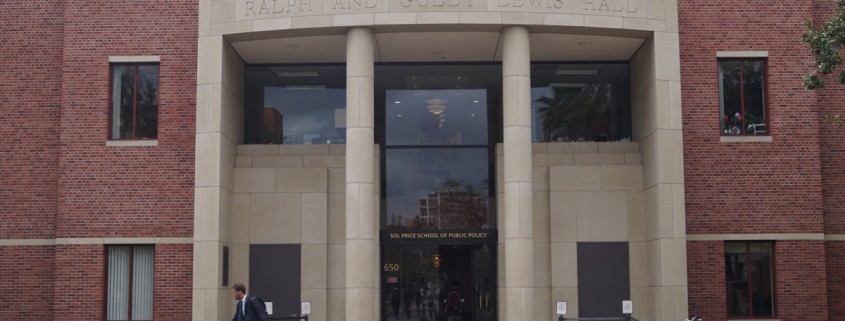USC Price partners with COMEXUS
The U.S.-Mexico Commission for Educational and Cultural Exchange, has partnered with the Price School of Public Policy to introduce a new Mexican scholar-in-residence program focusing on binational energy policy coordination in Mexico and California. This would allow a selected scholar to conduct research and policy forums in a four-month residency in conjunction with Price in Sacramento.
Dean of USC Price and H. C. Erwin and Ione L. Piper Chair Jack Knott said the collaboration will seek to explore renewable energy sources while strengthening the international partnership and leadership, according to a press release.
“Historic reforms in the area of energy policy by the government of Mexico and the state of California have created an extraordinary opportunity to explore cross-border collaboration, particularly in the area of renewable energy sources, and strengthen our partnership and global leadership in this area,” Knott told USC News earlier this month.
The program will allow for communication on energy policy on a national level and plans to instigate student response.
“One of the things we look forward to doing once this person is confirmed: We plan to reach out and do a joint panel, get students involved,” said Mario Enriquez, a representative from the USC Price Latino Student Association.
Enriquez praised the program for focusing on these types of policies and stresses how students in his organization can broaden their involvement in and knowledge of binational energy policies.
The program primarily seeks to bridge academic researchers in California and Mexico, increase student collaboration and connect these students to policymakers, according to Director of USC Mexico Angela McCracken.
“They are going to bring in a Mexican perspective … They are going to bring in someone that has a bilateral perspective on U.S.-Mexico studies, an expertise,” McCracken said.
McCracken lauded the strategic location of Price Sacramento while bringing attention to the historical relevance of the California-Mexico relationship.
“Sacramento is the perfect place. The Price Center in Sacramento has a long history … of hosting delegations for Mexico in Sacramento in binational policy forum,” McCracken said.
Both institutions have collaborated over the years, and McCracken said that the organization recognized what needed to be addressed and created an opportunity to fulfill that need. Improving the relationship between Los Angeles and Mexico has included involvement from people with USC ties in the past, such as Carlos M. Sada, the consul general of Mexico in Los Angeles who has had with extensive experience with Price over the years.
Sada was paramount to creating this program, along with Janet Denhardt, director of Price in Sacramento, and Hazel Blackmore, the executive director of COMEXUS.
Mexico’s policy shifted in 2013 from state-owned energy sector to allowing private-sector participation.
McCracken said that the energy reform being implemented in Mexico parallels the environmentally protective, sustainable energy policy being developed in California.
“The idea is both California and Mexico are dealing with the same problems related to energy in different contexts and in a transformative time. So they both can learn, one from the other,” McCracken said.

